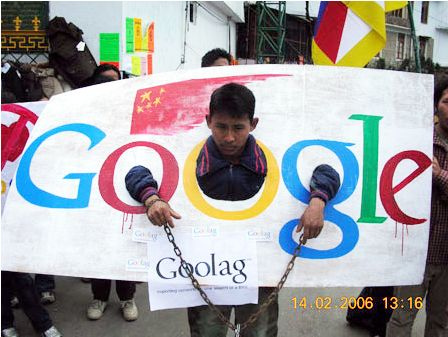Bravo! Google takes a stand for human rights in China

I admit to being a bit tough on Google in the past but they are one of the biggest kids in the playground and we are entitled to expect a lot from them when it comes to corporate responsibility leadership. And today Google is living up to and far beyond the call of its moto - 'don't be evil'.
In an extraordinary blog post David Drummond, Google's Chief Legal Officer goes public to report:
- serious cyber attacks on Google's infrastructure last month that resulted in theft of IP
- 20 other companies from a broad range of sectors including finance, chemicals, media, technology were also targeted
- the gmail accounts of Chinese human rights were targeted
- subsequent investigation found that dozens Gmail accounts of human rights activists in the US, Europe and China were breached by organized phishing scams separate from the attack last month
Says Drummond:
It appears, over time Google has found it hard to live up to its values in doing business in China and now its prepared to courageously confront the possibility that it will no longer continue to operate there if it cannot do so ethically. Google has already taken the decision that it will no longer censor Google.cn searches.
Such a principled stand does indeed have far reaching consequences and we all ought to be thankful to Google for taking a stand for all of us, for universal principles of human rights. Such bravery is sadly all too rare and with too many companies and governments demonstrating a sense of learned impotence that is the tragedy of the commons when it comes to human rights and sustainability. Perhaps this move will prompt Yahoo! CEO, Carol Bartz to rethink her position on China which she set out last summer in response to questioning by Amnesty International:
One year into her CEO tenure this week Carol Bartz captured headlines by giving herself a B-. If she stands shoulder to shoulder with Google on a principled stand to protect human rights under threat I'll give her an A+.
